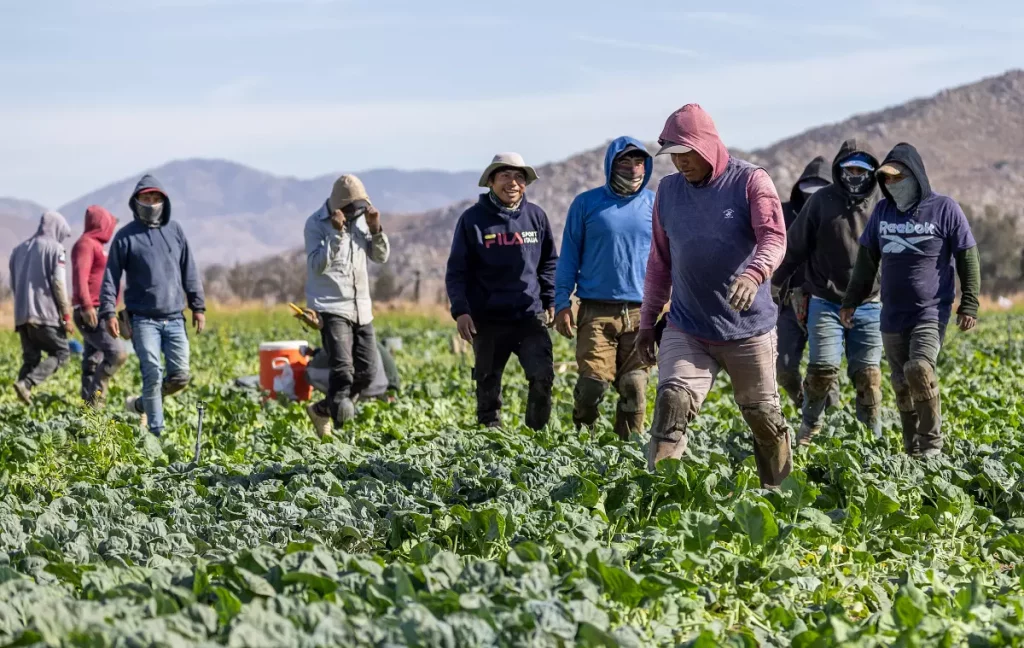Former U.S. President Donald Trump has hinted at a surprising shift in his immigration stance by proposing to legalize undocumented migrant farmworkers. During comments on Tuesday, Trump acknowledged the important role these workers play in American agriculture and suggested they might be allowed to remain in the country legally.
This announcement marks a notable departure from Trump’s usual tough policies on immigration, particularly his ongoing push for mass deportations. The new idea would allow millions of undocumented farmworkers—many of whom have lived and worked in the U.S. for years—to stay indefinitely.
Trump praised migrant farmworkers, saying they are especially skilled and willing to perform demanding agricultural tasks that many Americans avoid. He contrasted them with “inner city” residents, claiming that even with efforts to replace migrants with American-born workers, it hasn’t worked.
“These people do it naturally,” Trump said, referring to the migrant laborers. He added that a farmer once told him workers don’t complain or get injured because if they stop, they simply can’t survive. Trump called them “very, very special people.”
While Trump has not laid out full details of the proposal, it’s clear that the plan could spark strong political debate. It would likely face backlash from immigration hardliners who oppose offering any path to legal status for undocumented individuals. Critics from both sides may also question the ethics and tone of Trump’s comments about workers from inner cities.
Still, the idea highlights the challenges farmers are facing across the U.S. Agricultural businesses have long pushed for more flexible immigration policies, saying the country heavily depends on migrant labor for planting, harvesting, and maintaining crops. Many farming leaders say there is simply not enough interest among U.S. citizens to take on such difficult jobs, especially at current pay levels.
The U.S. Department of Agriculture has estimated that nearly half of all farmworkers in the country are undocumented. Efforts to expand legal programs like the H-2A visa—designed for seasonal agricultural work—have fallen short, especially for industries like dairy that operate year-round.
Trump’s suggestion of legal status could be part of a larger strategy to balance his strict immigration platform with the economic needs of U.S. industries. However, any move toward legalization will be closely watched by lawmakers, labor unions, and civil rights groups.
So far, the Trump campaign has not shared specifics about how the plan would work, who would qualify, or how long it would take. But the mention of such a policy shows a possible softening in one part of Trump’s otherwise aggressive immigration agenda.
With immigration expected to be a major issue in the 2026 elections, Trump’s proposal may be an attempt to appeal to both conservative voters and key industries. Whether the plan gains traction or is seen as a political move remains to be seen.

